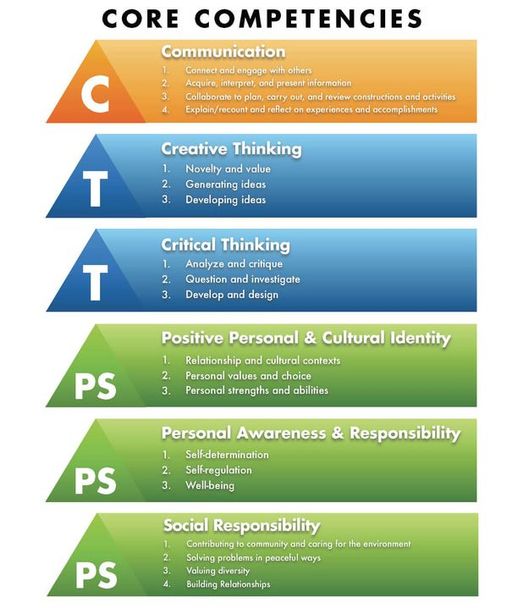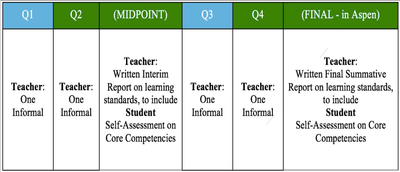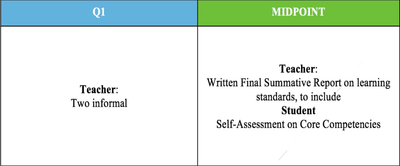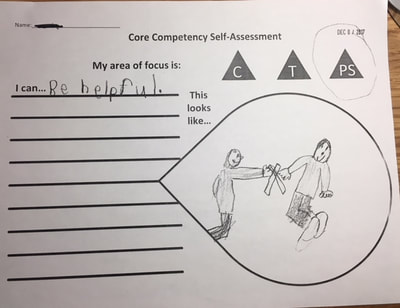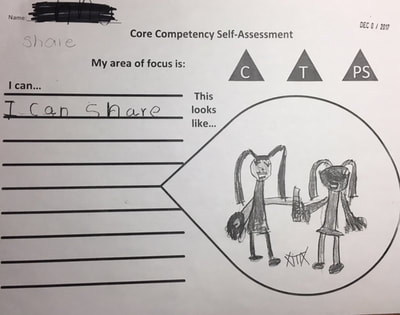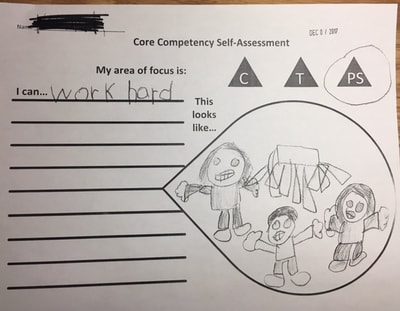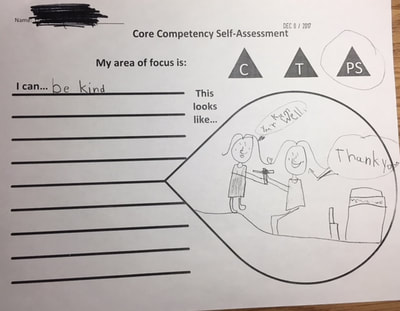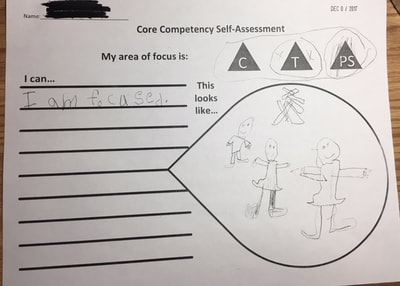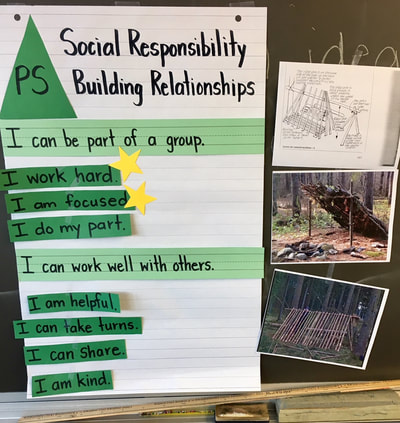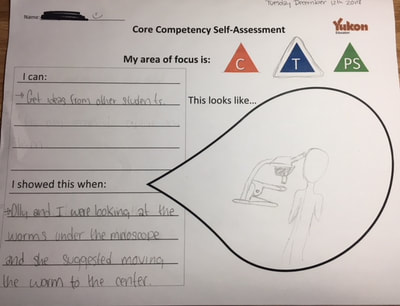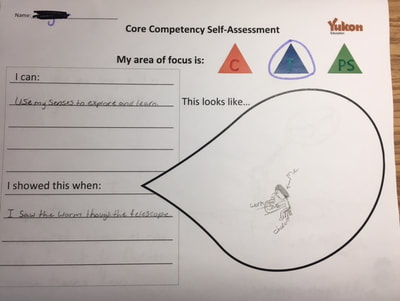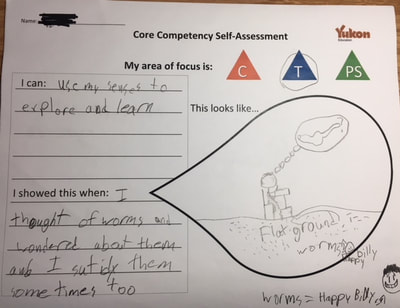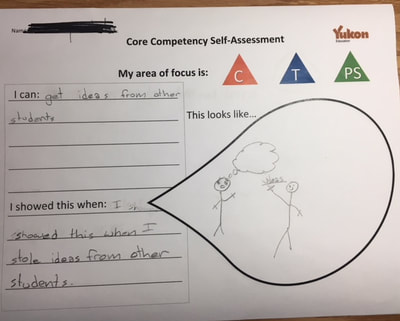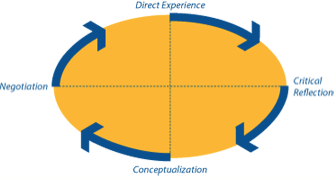Reporting on core competencies
The new reporting system requires that students self-assess on the core competencies. For this to be meaningful and an accurate reflection of their learning students will need to be taught how to self-assess and given multiple opportunities to practice.
Embedding core competencies in outdoor and experiential activities comes natually. Core competencies have and continue to be foundational in outdoor learning. Engaging students in off-site environments allows them opportunities to build these important skills!
Communicating student learning ibook & student self-assessment
The images below show what is expected regarding student self-assessment of the core competencies. Even though the required self-assessment of core competencies is in a summative position it should not be the first time students do this in the semester/year. Students will need iterations to gain the knowledge and skills necessary to self-assess accurately.
Asking the right questions:
| Self-assessment Reflection Questions.pdf |
Core Competencies
| Core Competencies Brief |
| Core Competencies Detailed |
Core competencies & student self-assessment templates
| Core Comp Student Self-Assessment Template I |
| Core Comp Student Self-Assessment Template II |
| Core Comp Student Self-Assessment - Primary |
| Core Comp Self-Assessment - Intermediate |
Click here for more templates on the Curriculum & Assessment page.
Yukon examples
Gr. 1 post ADST activity
Gr. 6/7 post inquiry with worms
Assessment
Outdoor and off-site learning experiences are rich, and should not take place without assessment. Students in your class thrive in these hands-on, minds-on situations and we need to capture evidence of their learning and also use formative assessment to enhance their learning. The more routinely we use assessment practices in off-site environments the more we will see students rise to the occasion, thus avoiding the dreaded 'recess syndrome'. Recess syndrome is best described as how students may behave during off-site trips if they are facilitated in a similar way to recess.
Checklist are great tools for teachers to capture evidence of learning efficiently in the outdoors. The excel file below is an example of a checklist for several outdoor pursuits. Check it out:
Checklist are great tools for teachers to capture evidence of learning efficiently in the outdoors. The excel file below is an example of a checklist for several outdoor pursuits. Check it out:
| Experiential Education Learning Outcomes |
Reflection has long been a mainstay of off-site education. These can be fantastic assessment for learning (AFL) opportunities if captured and revisited in a structured way that makes sense to the learner. Think of the experiential cycle.
When planning your off-site experience make time for reflection throughout rather than just at the end. Provide descriptive feedback to students on these reflections and have them revisit the activity, project, challenge or task. This can be done for almost anything from paddling a canoe to analyzing an aquatic invertebrate sample.


